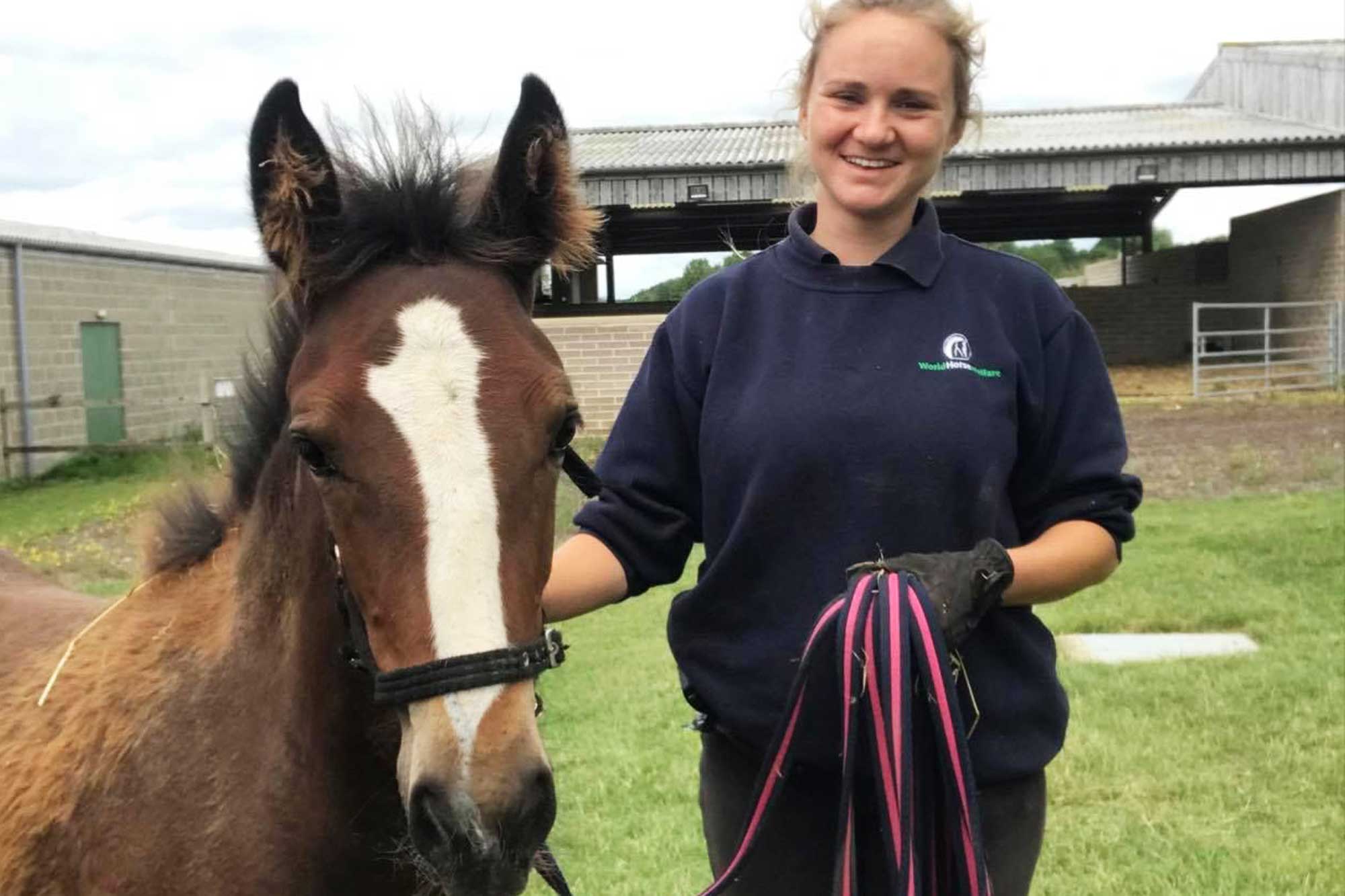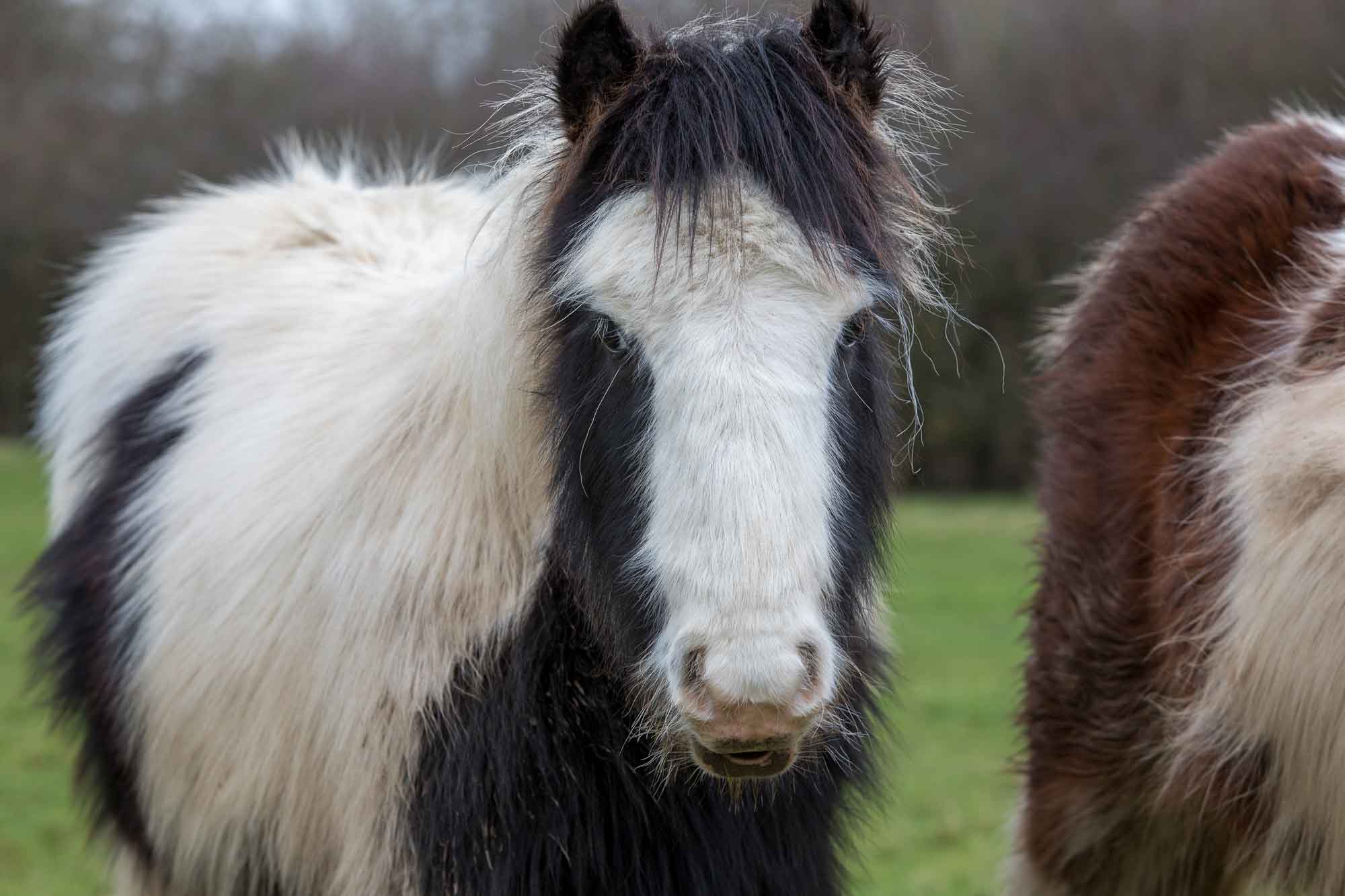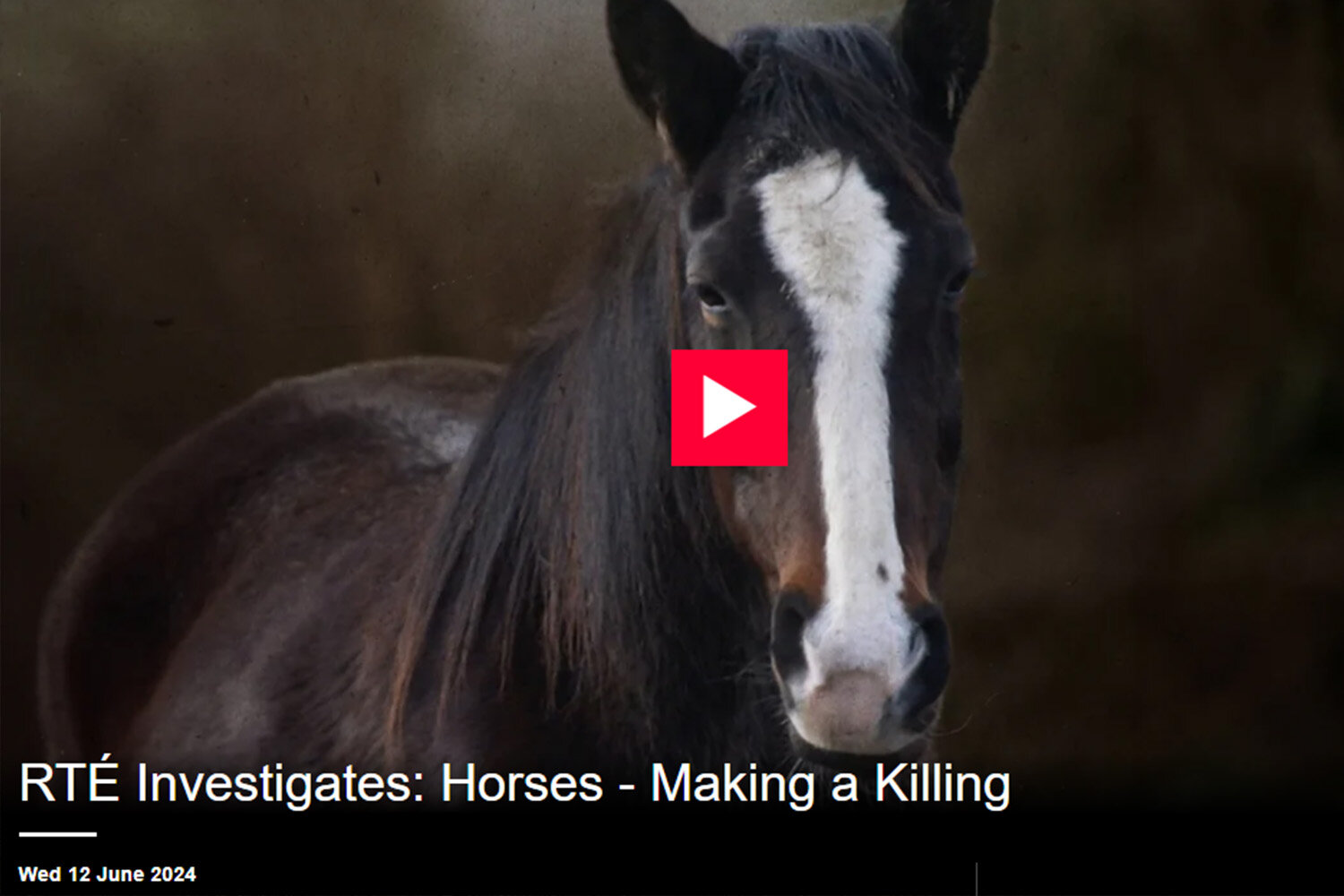We catch up with some of the World Horse Welfare family to find out what working with horses means to them.
Posted on 03/10/2025

As the only day dedicated to all animals and their wellbeing, World Animal Day recognises our unique relationship with animals and the ways in which they enrich our lives. Here at World Horse Welfare, our dedicated teams have been working to improve the lives of horses, ponies, donkeys and mules in the UK and across the world for almost 100 years.
Our founder, Ada Cole, was a staunch defender, a fearless advocate and a passionate campaigner. She was moved to create a campaigning organisation to prevent the live export of horses from Britain to slaughter. For almost a century we have been inspired by her tenacity and outlook to put the welfare of all horses, everywhere, at the front and centre of everything we do.
Ada’s values, ethos and pragmatic approach still beat at the heart of the charity and in celebration of World Animal Day, we catch up with some of our World Horse Welfare family to find out what working with horses means to them.

Claire Gordon – Chief Field Officer
Tell us a bit about how your role helps improve the welfare of horses…
I feel incredibly lucky to be in my role because every single day, our Field Officer team is out there responding to horses and ponies in need – horses spotted by caring members of the public who knew something wasn’t right. Whether it’s rescuing them and bringing them to safety at one of our rescue and rehoming centres or working with owners to make sure horses get the help they need, our work is always hands-on, practical, and life changing.
It’s a job that can be both heartbreaking and rewarding in equal measure – but no matter how tough it gets, there’s always something we can do to make things better for the horses. That sense of purpose is everything.
What aspect of your work with horses means the most to you?
Some of the rescues we carry out are incredibly complex and emotionally challenging, so I always feel a huge sense of relief and satisfaction when we close the ramp of the last lorry, knowing the last horse is finally safe – and on their way to a better life. That moment, when danger has passed and the future begins, is hard to put into words.
I’m also lucky enough to care for one of our rehomed ponies myself – World Horse Welfare Beenie. She was rescued as an abandonment by the charity back in 2011, having been found tied to a lamp post in Cardiff after another young pony straying with her had been clipped by a car. Now 17, she’s the perfect child’s pony – adored by both my daughter and me in equal measure. Watching her live a life filled with love and security reminds me why rehoming is such a vital part of our work. Seeing our ponies in their new homes, knowing where they came from and how far they’ve come – it’s one of the greatest joys of the job.
Tell us one fascinating fact about horses that you wish more people knew?
Horses can recognise and remember human emotions – studies have shown they can read facial expressions and recall whether someone looked angry or happy – even after time has passed. This means how you treat a horse can shape how they feel about you in the future. It’s a powerful reminder that our body language, tone and consistency really matter in how we build trust with them.

Amy McCormack – Supervisor at Glenda Spooner Farm, Somerset
Tell us a bit about how your role helps improve the welfare of horses…
Everything we do at the farm is to improve the horse’s physical and emotional welfare. Alongside providing day-to-day care, a large part of my role is the handling and training of the unhandled horses. Their arrival at the centre is often a huge adjustment for many of them, so we use positive reinforcement training so that they have only positive training experiences and ensuring we always provide choice. This gives them a solid foundation of learning which helps us teach them the skills to eventually be rehomed and thrive in their homes.
What aspect of your work with horses means the most to you?
The part of my job that means the most to me is that I get to show the horses in our care that they can build or re-build trust and connection with people.
Tell us one fascinating fact about horses that you wish more people knew?
Although a horse can sleep standing up, they need at least 4 hours of comfortable recumbent REM sleep per day.

Dr Faye Al-Nakeeb – International Programme Officer
Tell us a bit about how your role helps improve the welfare of horses…
I work to uphold the quality of our international programme and ensure that the welfare of working horses, ponies, donkeys and mules around the world is being positively impacted, as I work closely with our international projects and the research they contribute to.
What aspect of your work with horses means the most to you?
My work in improving both horse and human health on a large scale is the most fulfilling part of my role.
Tell us one fascinating fact about horses that you wish more people knew?
That horses are so integral to people’s day to day lives worldwide and are very appreciated in many places.

Kathryn Coombes – Groom at Hall Farm, Norfolk
Tell us a bit about how your role helps improve the welfare of horses…
My role allows me to help horses by enabling me to give them positive experiences with humans to reshape their emotions after often traumatic, past experiences.
I can also help improve welfare by supporting the specialists – the farrier, vet, dentist and physiotherapist – in providing day-to-day care for these vulnerable horses. This can include providing the correct feed, carrying out regular checks, ensuring the prompt treatment of any conditions and identifying any issues which need referring to the specialists, so the horse gets the appropriate treatment required.
What aspect of your work with horses means the most to you?
Seeing horses progress from being traumatised and skeletal on intake to being healthy, well-adjusted horses who are rehomed to loving, responsible homes.
Tell us one fascinating fact about horses that you wish more people knew?
Horses cannot vomit so they have to have a very specific diet because if they eat the wrong thing they cannot throw it up and can become very unwell.

Frances Plume – Senior Relationship Manager
Tell us a bit about how your role helps improve the welfare of horses…
I have worked at World Horse Welfare for 27 years and over that time I have organised and run over 20 years’ worth of overseas challenge rides and countless pleasure rides in the UK, organised our London Marathon teams for many years and supported fundraisers through their own challenge events.
I now work within the senior stewardship team securing long-standing centenary support. Working in fundraising I can see the direct results of my role helping to improve standards and care for horses throughout the UK and the world.
What aspect of your work with horses means the most to you?
It is the opportunity to inspire others about our charity and the breadth of our work and impact, and the fact that my lifelong passion is also my work – not many people can say that! Also seeing a poor little frightened, or abused or neglected, horse blossom under our grooms’ expert care and be rehomed into a loving and secure environment. What could be a better payday than that?
Tell us one fascinating fact about horses that you wish more people knew?
How many do you want?!! Horses can’t breathe through their mouth (so don’t do up your noseband so tightly!). A horse has the most facial expressions of any non-primate animal. The company Ariat is named after the famous racehorse Secretariat. A horse’s spine doesn’t stop fully growing until they are six. Horses are one of the few mammals where the males don’t have nipples. I think I will stop now!
The theme of World Animal Day this year is Save animals, save the planet! It reminds us of the connection between animal welfare and the health of our planet, something our charity acknowledges in our work with horses and their owners across the world.
Topics
Related Blog Posts

Buena’s story – how our foals are cared for from birth to rehoming
Senior Groom Steph introduces lovely filly Buena and explains how the team care for foals from birth right through to finding them a loving home for youngster handling.

Behind the scenes: the first few months as a World Horse Field Officer
Find out what really goes on behind the scenes as a World Horse Welfare Field Officer.
Recommended News Articles

Outrageous slaughterhouse cruelty revealed in RTÉ documentary
A documentary by Irish broadcaster RTÉ, shown yesterday evening, has left our charity outraged at the shocking acts of cruelty captured within an Irish slaughterhouse lairage.

Webinar: Myth busting: Is my horse being a pain or in pain?
Welfare Wednesday Webinars return to our screens

Fern had been neglected for weeks
Fern was in very poor condition but her life was transformed thanks to a call to our Welfare Line.
Enjoy reading stories like this?
Join over 65,000 other horse lovers and sign up for our email newsletter

Join over 65,000 other horse lovers and sign up for our email newsletter
Sign me up now